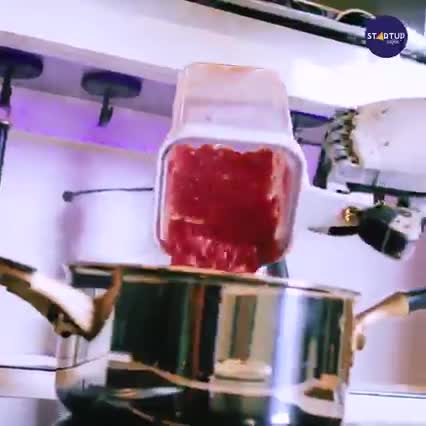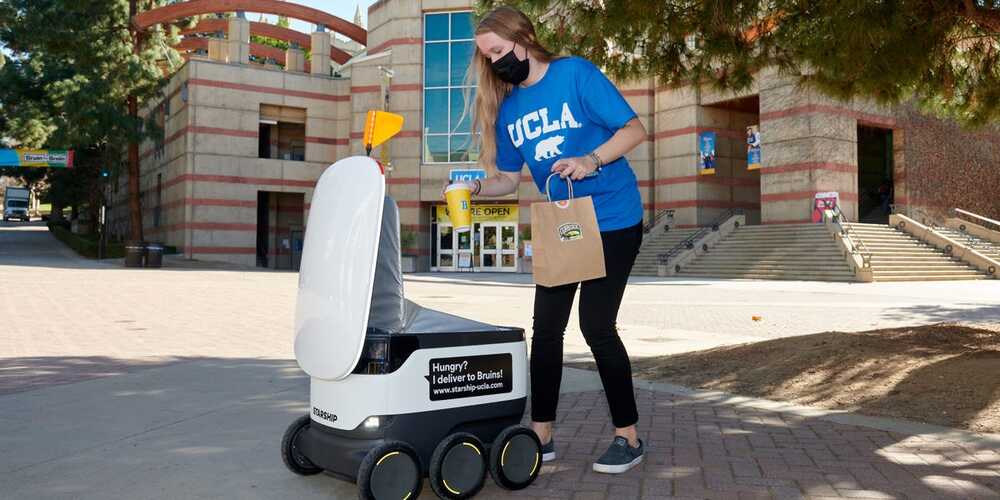Would you like your own personal robo-cook? 😃
The future of cooking at home.


Circulating branched-chain amino acids (BCAAs) are elevated in obesity and diabetes, and recent studies support a causal role for BCAAs in insulin resistance and defective glycemic control. The physiological mechanisms underlying BCAA regulation are poorly understood. Here we show that insulin signaling in the mediobasal hypothalamus (MBH) of rats is mandatory for lowering plasma BCAAs, most probably by inducing hepatic BCAA catabolism. Insulin receptor deletion only in agouti-related protein (AgRP)–expressing neurons (AgRP neurons) in the MBH impaired hepatic BCAA breakdown and suppression of plasma BCAAs during hyperinsulinemic clamps in mice. In support of this, chemogenetic stimulation of AgRP neurons in the absence of food significantly raised plasma BCAAs and impaired hepatic BCAA degradation.
Flip flops from plants. 😃
Researchers at the University of California San Diego have figured out how to turn algae into flip flops. They founded a startup to sell the shoe, but face a challenge in getting their invention mass produced: There aren’t enough algae farms to support the startup’s supply chain.
MORE WORLD WIDE WASTE VIDEOS:
How Avocado Waste Is Turned Into Plastic | World Wide Waste.
This $500 Designer Handbag Is Made From Aluminum Cans | World Wide Waste.
https://www.youtube.com/watch?v=GHYGvCxsmuc.
How Old Tires Are Turned Into Electricity | World Wide Waste.
#Algae #Pollution #BusinessInsider.
Business Insider tells you all you need to know about business, finance, tech, retail, and more.
Revitalizing the cocoa value chain in nigeria — his royal majesty oba dokun thompson, oloni of eti-oni ijesa — eti-oni development group.
Eti-Oni is a town located in The State of Osun, in south-west Nigeria. Eti-Oni is one of the numerous towns that make up the ancient majestic Kingdom of Ilesa.
Eti-Oni is the home of one of the oldest known cocoa plantations in Nigeria and it was from Eti-Oni that cocoa was spread to many other communities of south-west Nigeria. The crop over time became one of Nigeria’s major cash crops, a major source of income for the then South West Region of Nigeria before the discovery of crude oil in the late 1950s.
The indigenous people of Eti-Oni are part of the Ijesha clan of The State of Osun.
The town is ruled by a monarch, His Royal Majesty Oba Dokun Thompson, bearing the title of Oloni of Eti-Oni Land.


In the coming Age of Superintelligence [and automation] everyone should be entitled to social dividend, “free” money such as UBI, just for being alive. We should not forget that the wealthiest of us would not be as fortunate without civilization. Otherwise, Jeff Bezos would have to forage for food in the Amazon jungle all by himself. Being a human today is more than enough of a fair contribution to receive free money from the government. Going forward we’ll see more and more prominent voices vouching for UBI.
#HybridEconomy #UniversalBasicIncome #UBI #BasicIncome #SocialDividend #TaxWallStreet #WealthTax #InheritanceTax

Autonomous food delivery company Starship Technologies hit 1 million deliveries this month, and has doubled the size of its robot fleet.
Starship Technologies, the autonomous delivery company that sends little six-wheeled robots to people’s doorsteps with groceries and takeout, has had an astonishing year.
There is a prize purse of up to $500000 for the team that can keep the astronauts fed during deep space journeys. Read the details here.
A fruitful experiment.
Top strawberry growers were pitted against data scientists in a smart-agriculture competition organized by Chinese e-commerce platform Pinduoduo.
